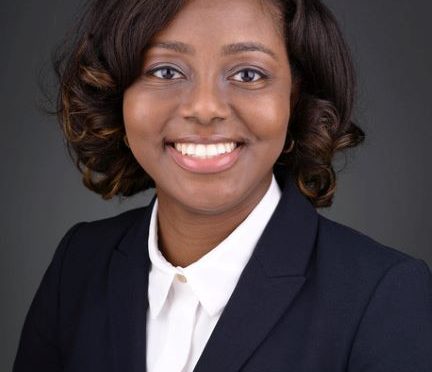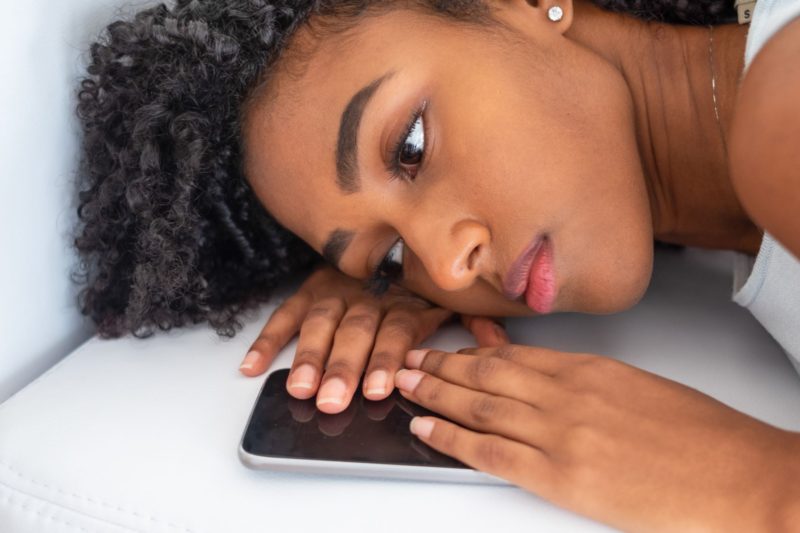Women Who Work: Dr. Lauren Roach (@dorkmcstuffins)

At Hugs for Black Women, we are committed to encouraging and empowering our female community and look forward to connecting with women on a mission to do the same. This week, we sat down with pediatric endocrinologist, Dr. Lauren Roach-McElroy, to continue our conversation with women who work. The physician opened up to us about everything from medicine to mental health. Read on for her courageous and remarkable words of wisdom.
HBW: When did you know you wanted to be a physician? What made you choose to pursue a career in medicine?
Dr. Roach: I knew pretty early in college I wanted to do something medical. My mom and aunts are all nurses, so I had plenty of exposure to medicine growing up. I ultimately decided to go into medicine after shadowing my hometown family medicine physician. I always loved science and puzzles, so it seemed like a natural choice.
HBW: Why pediatrics?
Dr. Roach: I chose pediatrics because kids are just so resilient. Unlike treating adult patients, many of the conditions that children face are of no fault of their own, and I find it very fulfilling to help them grow and live healthy lives. And of course, working with kids can also be very fun. There’s never a dull day at work.
HBW: Congratulations on your position with Children’s Healthcare of Atlanta beginning this fall! How long has your journey to attending Pediatric Endocrinologist been? What inspired you to see it through?
Dr. Roach: Thank you so much! I’m excited about it. To be a pediatric endocrinologist, you have to complete four years of medical school, three years of pediatric residency, and three years of fellowship in pediatric endocrinology. I will complete my fellowship this summer and start as an attending this fall. It’s a bit surreal because I feel like there’s so much more left to learn, but that’s just medicine, period; it’s a commitment to lifelong learning. I chose endocrinology because I find the physiology very intriguing, and working with diabetic families can be so rewarding. Diabetes is often a life-changing diagnosis, but it is my goal for my patients that with good diabetes care, it will not be a life-limiting diagnosis.
I would not have been able to see it through without my family and friends being there as a constant source of encouragement.
HBW: What challenges have you faced in getting to this point? How have you navigated them?
Dr. Roach: Getting into medical school was my biggest initial challenge. I had the grades/GPA in undergrad, but the MCAT was my first big obstacle. Standardized testing has always been challenging for me with my anxiety and overthinking many questions. I went to graduate school before medical school, which really helped with my preparation and how I approached questions. Also, training for a career in medicine has significantly impacted the amount of time I spent with family. I’ve missed out on many family events, birthdays, graduations, etc. I’m blessed to have a very understanding and supportive family, and I try to spend as much time with them now as I can.
On a personal level, I’ve struggled a lot with anxiety. I’m constantly worrying about things related to my job and my personal life. Additionally, working in medicine as a woman of color, I’ve realized I’ve been a sufferer of “Impostor Syndrome.” I’ve tried different things to help, like mobile app-based therapy, listening to podcasts, and trying to do better at controlling my emotions. It’s a daily challenge, but I’m working through it.
HBW: What is something you know now that you wish you had known 10 years ago? Fifteen? It can be anything. It doesn’t have to be related to your career.
Dr. Roach: Something I wish I’d known ten years ago, probably to invest in Bitcoin and Amazon, lol. I remember hearing about them when I was in grad school, and my mind was just focused on school at the time, so I didn’t look much into it. Of course, now, looking back, I’m kicking myself. Investing is not a topic we learned much about in college as a science major, and it’s not something that’s stressed in “our” communities. I started my first retirement account in residency only after talking with some of my co-residents who’d had theirs set up for years.
HBW: What is a typical day like for you?
Dr. Roach: Well, that depends on the day and week. If it’s a week that I’m not in inpatient service, I’m usually in clinic, which as a fellow, is on average twice a week. I spend the remaining days doing administrative calls to families or following up on my fellowship research project. If I am on inpatient service for the week, I usually get to the hospital around 8 AM to prepare for rounds with the resident and attending. We will see patients admitted for diabetes-related issues and do other endocrine consults. My day will usually wrap up around 5 PM when I sign out to the overnight fellow.
HBW: What do you enjoy doing in your off time?
Dr. Roach: I spend a lot of my free time watching movies, cooking new recipes, and spending quality time with my family. I’m really into gardening during the summer months, and my husband and I like to go to different food festivals or beer gardens/breweries on warm days.
HBW: What advice would you give someone interested in pursuing a career in medicine?
Dr. Roach: I would recommend they shadow different subspecialties to see things firsthand. If they are really interested, the best thing they can do is ensure that they have the required coursework with their undergraduate institution and do lots and lots of test prep. A lot of the MCAT isn’t necessarily testing to determine if you know the information on a basic level. Instead, it’s testing to discern if you can use critical thinking to solve complex problems.
Get involved in research internships during your summer breaks. Because the science of medicine is constantly evolving with new treatments and diagnostic methods, getting early exposure to research will only help them be more prepared to function as a physician. Lastly, when things would become difficult for me in school or even in residency and fellowship, I would always tell myself, if all these people before me could get through it, so can I. So keep that mindset and keep pushing forward.
HBW: What words of encouragement and support do you have for black women?
Dr. Roach: My message of support for black women:
- Never stop loving yourself.
- Allow yourself to feel/experience your emotions, but don’t let them overcome you. If you’re feeling overwhelmed, I’ve found it helpful to say to myself, I recognize that this situation is very stressful, and I sense myself feeling anxious, but this feeling will pass, and things will get better.
- Find and do things that make you happy, and keep doing them!
Many times, life can be heavy on us, but if we stop pursuing those small lights that bring us joy, things can become very dark. Keep seeking God in all things, and He will guide you.






Dominique Kelly
I can see this being a retreat. All the women that you feature on your blog. To network, fellowship, and heal. #HBWRetreat2023